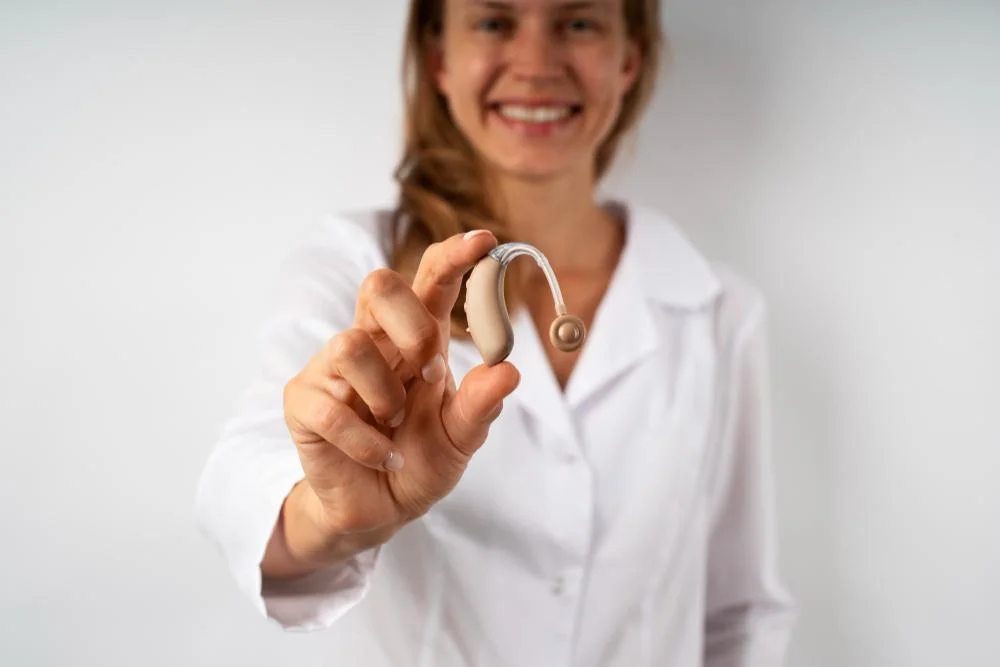A hearing aid is an expensive investment; thus, making sure that you can keep it working optimally for a longer time is important. One of the best ways to do this is by giving it proper care. Not sure how to clean it properly? Check out below for the tips on how to maintain your hearing aids properly.
You’ll love this next read—it’s closely connected to your current interest.
How to Properly Maintain Hearing Aids?
Mainly, there are two important cornerstones when maintaining your hearing aids. You should do basic cleaning daily, and for more thorough maintenance, it should be done every week. Daily cleaning aims to remove debris or earwax that accumulates when you use the hearing aids. While for the weekly maintenance, the aim is to remove deeper buildup which might be missed during daily cleaning.
Daily Cleaning
You can do daily cleaning for your hearing aids either in the morning before starting your day, or later before you’re going to sleep. You can choose the best time to do it, but just make sure to never skip it. Here’s how to do a daily clean for your hearing aids!
Visual Inspection
First, you should start by taking a few moments to look at your hearing aids. You should check for any signs of damage or earwax buildup around the hearing aid area. You should pay attention to any crevices of the hearing aids, because usually these are the places where the debris can accumulate. Visual inspection can help you spot any imperfection asap, so you can address any issue promptly.
Clean It Gently
Earwax and any other dirt on the hearing aids can be cleaned gently with a soft and dry brush. For better cleaning tools, you can ask a healthcare professional for a recommendation.
For example, if you live in Toronto, you can ask your hearing aids at Toronto specialist to let you know whether there are any recommended wipes or cleaning solutions. As most of the parts of the hearing aids are very delicate, you should never use a sharp object or general soap to clean them. If you simply clean it without any care in mind, beware that it will cause problems instead.
Wiping Down the Hearing Aids
Not only should you remove earwax and debris, but wiping down the hearing aids is also important. Use soft and dry microfiber clothes to clean any oil or dirt that sticks on the hearing aid surface when being used.
Proper Storage
After using the hearing aids, the next thing you should do is to properly store them in the designated place. Choose a cool and dry area, and open the battery door of the hearing aids. This is to ensure that if there’s any moisture around the compartment, it can properly evaporate. Moisture trapped around the battery area of the hearing aid can cause it to easily corrode.
Weekly Cleaning
Follow the hearing aids manufacturer’s guide for the weekly cleaning. Usually, the manufacturer’s guide will include cleaning guidelines, and following it can help you to thoroughly cleanse them in a safe manner. Additionally, it’s also best to invest in a specialized cleaning solution which is recommended by your specialist.
By following the daily and weekly cleaning, you can prevent damage and ensure clear, sound transmission when utilising your hearing aids.
3 Ways to Prevent Damage to the Hearing Aid
Aside from cleaning it daily and weekly, you should also take preventive measures to safeguard your devices from any damage.
Always Keep it Dry
Just like most electronic devices, make sure that the hearing aids are away from any water or other liquid spills. Moisture can corrode the components of the hearing aids, and it might cause malfunction. Remove your hearing aid before showering or doing any activity around water. If it does get wet, immediately dry it with a soft cloth to remove any lingering moisture.
Avoid Extreme Temperatures
Extremely cold or hot temperatures can both damage your hearing aids. Avoid exposing your hearing aids in areas with direct sunlight or leaving them in a hot car. When storing the hearing aids, you should make sure to place them in a dry and cool place.
Handle Hearing Aids Gently
Stored hearing aids properly, and always handle them gently. Put them in a protective case when not in use, to protect them from falling. There are many cases of hearing aid quality starting to decline once it drops onto a hard surface.
Key Takeaway
As a hearing aid is often an expensive investment, you should prioritise the care and maintenance to maximise its lifespan. Taking care of your hearing aids is important to ensure that they can serve you for a long time, without any decline in performance. By following our guide above, hopefully, your hearing aids can deliver optimal results for years to come!
Don’t stop here—explore more tips, guides, and fresh ideas waiting for you.







